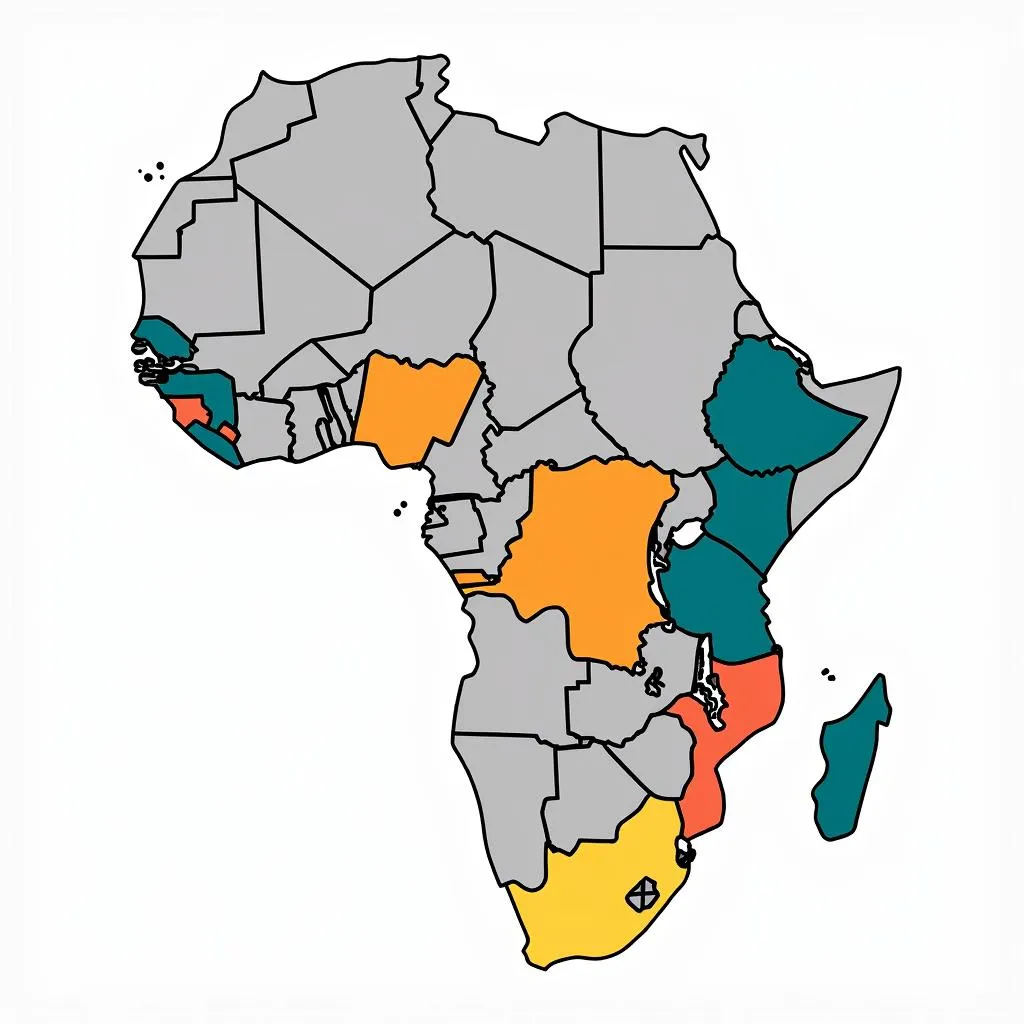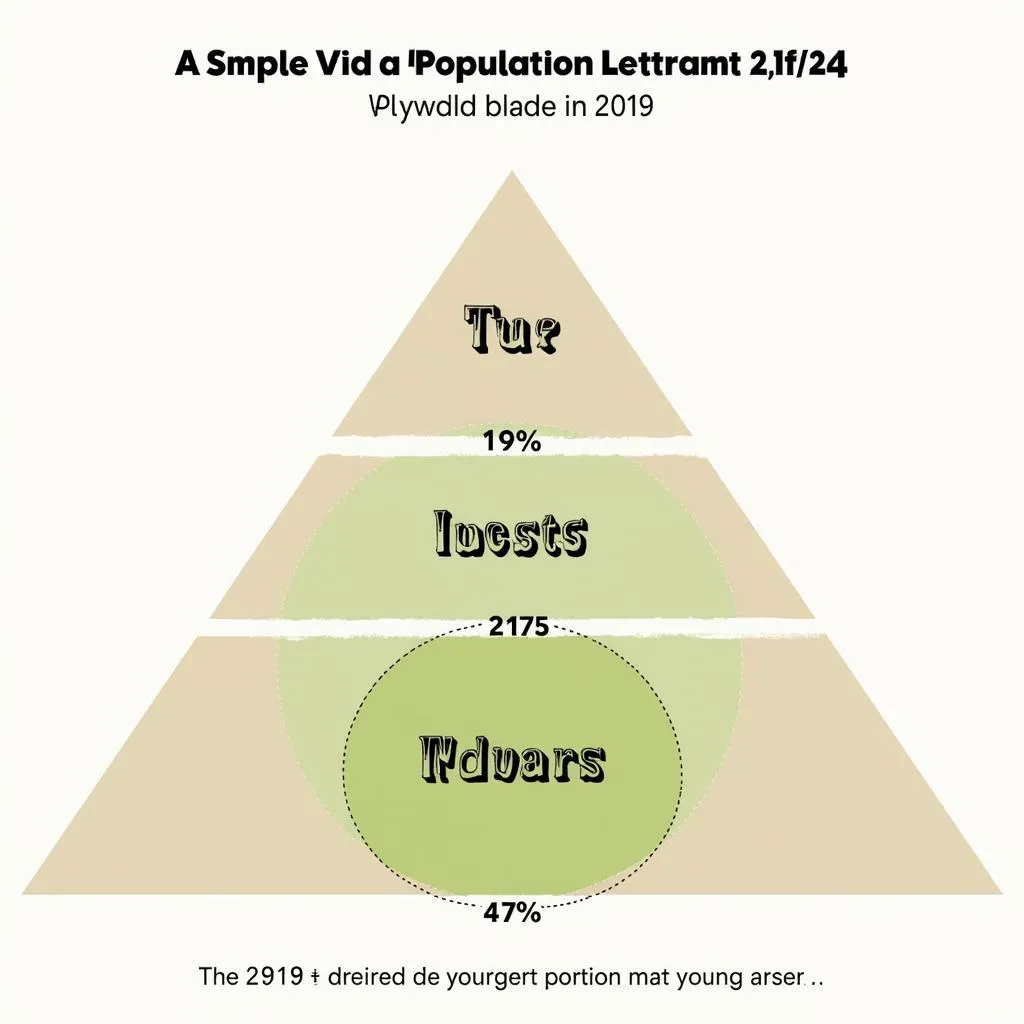African Countries by Population 2019: A Look at the Continent’s Demographics
Africa, with its vibrant cultures and diverse landscapes, is also a continent of remarkable population growth. Understanding the population dynamics of African countries is crucial for grasping the social, economic, and political landscape of this evolving continent. In 2019, Africa witnessed significant population shifts and trends. Let’s delve into the demographics of African countries by population in 2019.
The Most Populous Nations: A Trio Leading the Way
In 2019, three countries emerged as the demographic giants of Africa:
- Nigeria: With a staggering population exceeding 200 million, Nigeria secured its position as the most populous country in Africa. This economic powerhouse exerts considerable influence on the continent’s affairs.
- Ethiopia: Trailing closely behind Nigeria, Ethiopia boasted a population of over 110 million in 2019. The country’s ancient history and cultural heritage continue to captivate the world.
- Egypt: Rounding off the top three was Egypt, with a population exceeding 100 million. Home to ancient wonders and a strategic location, Egypt remains a pivotal player in the region.
 African Population Density Map 2019
African Population Density Map 2019
Factors Driving Population Growth: A Complex Interplay
Several factors contribute to the significant population growth observed in many African countries:
- High Birth Rates: Cultural norms, economic factors, and limited access to family planning resources contribute to relatively high birth rates in many parts of the continent.
- Declining Mortality Rates: Improvements in healthcare, sanitation, and access to clean water have led to a decline in mortality rates, particularly among infants and children, further fueling population growth.
- Increased Life Expectancy: As healthcare systems improve and living standards rise in some regions, people are living longer, adding to the overall population numbers.
The Youth Bulge: A Demographic Dividend or Challenge?
A notable feature of the African population is its youthful composition. A significant proportion of the population is below the age of 18, creating what is often referred to as a “youth bulge.” This demographic trend presents both opportunities and challenges.
 African Population Pyramid 2019
African Population Pyramid 2019
On the one hand, a young and growing workforce has the potential to drive economic growth and innovation. However, without adequate investments in education, healthcare, and job creation, this demographic dividend could transform into a source of social and economic strain.
“Understanding the unique population dynamics of each African country is essential for tailoring effective development policies,” notes Dr. Abena Osei, a demographer specializing in African population studies. “A one-size-fits-all approach will not suffice.”
Urbanization Trends: Cities on the Rise
As populations grow, so too do African cities. Urban centers across the continent are experiencing rapid growth, attracting people seeking economic opportunities and a better quality of life. This rapid urbanization presents both opportunities and challenges for urban planners and policymakers alike.
 Urbanization in Africa 2019
Urbanization in Africa 2019
Conclusion: Navigating the Future of African Demographics
The population landscape of African countries in 2019 painted a picture of growth, diversity, and dynamic change. As the continent continues to evolve, understanding these demographic trends will be crucial for shaping sustainable development policies, fostering economic growth, and improving the lives of all Africans.
FAQs:
- What is the average population growth rate in Africa?
The average population growth rate in Africa varies by region but is generally higher than other continents. - Which African country has the highest population density?
Rwanda has one of the highest population densities in Africa. - What are some of the challenges associated with a youthful population?
Challenges include providing adequate education, healthcare, and employment opportunities for a large young population. - How does urbanization impact African countries?
Urbanization leads to increased demand for housing, infrastructure, and social services, posing challenges for urban planning. - What is the African Continental Free Trade Agreement (AfCFTA)?
The AfCFTA is a trade agreement aimed at creating a single market in Africa, potentially boosting economic growth. To learn more about the agreement’s potential impact, you can read about the African Continental Free Trade Agreement and India.
For further insights into related topics, you can explore our articles on the African CFTA and stay up-to-date with the latest African Continental FTA news.
Need assistance? Don’t hesitate to reach out to our 24/7 customer service team. You can contact us at +255768904061, email us at kaka.mag@gmail.com, or visit our office in Mbarali DC Mawindi, Kangaga, Tanzania.
